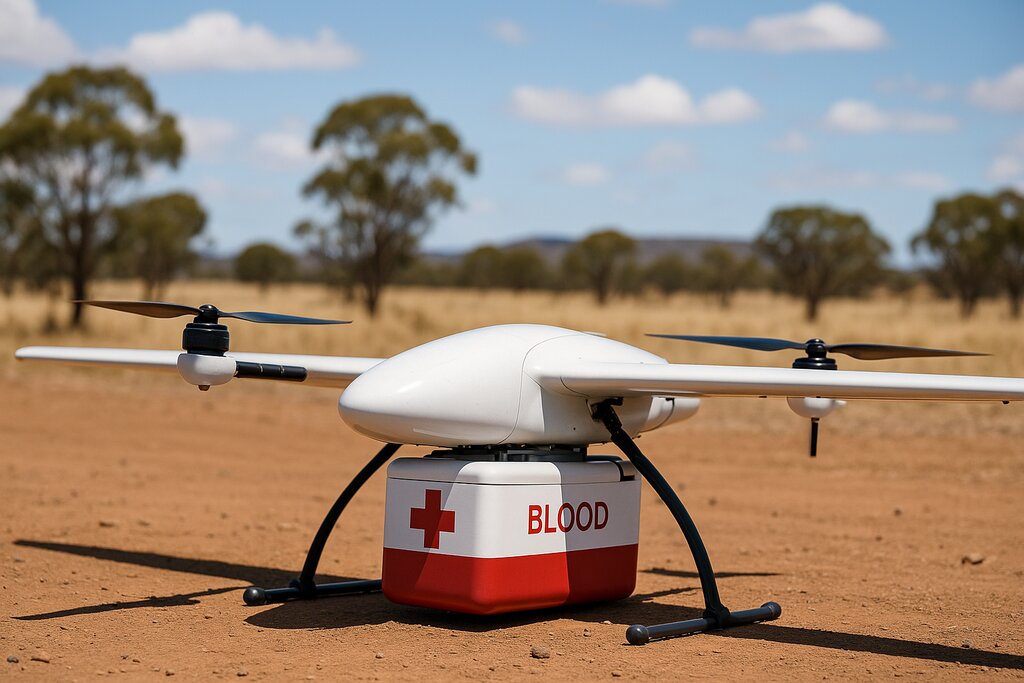Drone Blood Delivery: Revolutionising Medical Logistics in Australia
Drone technology is transforming industries across the globe, and healthcare logistics is no exception. One of the most remarkable advancements in recent years is drone blood delivery — a cutting-edge solution that addresses time-critical challenges in rural and emergency medicine. In Australia, where geography and vast distances often create barriers to prompt medical care, the implications are profound.
What Is Drone Blood Delivery?
Drone blood delivery is the process of transporting blood, blood products, and medical supplies using unmanned aerial vehicles (UAVs), or drones. This approach offers a rapid, efficient, and reliable alternative to traditional road or air transport — especially in remote or disaster-struck regions.
Unlike standard couriers, drones can bypass traffic congestion, poor infrastructure, and adverse terrain. With appropriately regulated flight paths, blood can be flown from collection centres or hospitals directly to emergency sites, regional clinics, or disaster zones within minutes.
Why Is Drone Blood Delivery Needed in Australia?
Australia’s healthcare system is among the best in the world, but geography often presents a formidable challenge. Remote Indigenous communities, regional towns, and mining sites often lack immediate access to medical facilities. In trauma cases, delays in receiving blood can mean the difference between life and death.
Current methods of delivering blood to rural areas involve road couriers, helicopters, or even charter flights — all of which are costly, logistically complicated, and weather-dependent. Drones offer a faster, more affordable, and environmentally sustainable alternative.
Australia’s vast terrain, frequent natural disasters, and decentralised population centres make drone blood delivery an ideal solution for rapid-response healthcare logistics.

Challenges of Drone Blood Delivery
While promising, drone blood delivery is not without its hurdles. These include:
- Regulatory barriers: CASA (Civil Aviation Safety Authority) regulations must be navigated carefully to operate drones beyond visual line of sight (BVLOS), particularly in controlled airspace or near hospitals.
- Payload and temperature control: Blood products must be transported at specific temperatures. Drones need specialised containers that maintain thermal integrity during flight.
- Flight reliability and safety: Blood is a precious resource. Delivery failures are not an option. Drone operators must demonstrate rigorous testing, redundancy, and reliability in their flight systems.
- Community perception and noise: The public must accept and trust drone operations over populated or sensitive areas.
- Integration with existing systems: Hospitals and blood banks require seamless integration with drone logistics — from dispatch to chain of custody.
Australian Case Studies and Early Trials
Several Australian states have begun exploring drone blood delivery trials. In regional areas, trial programs have demonstrated the feasibility of transporting blood and pathology samples between healthcare facilities using drones. These early projects have shown promising results, particularly in reducing delivery time, increasing reliability during extreme weather events, and maintaining proper temperature controls throughout the flight.
These trials have opened the door for wider adoption, particularly as CASA evolves regulations to support BVLOS operations for essential services. With the right framework, drone logistics can be safely and effectively integrated into regional healthcare systems.
Flying Glass offers drone consultancy services to assist healthcare providers, councils, and logistics companies interested in exploring such capabilities. We provide guidance on compliance, operations, equipment, and CASA approvals tailored for BVLOS and medical applications.
How Flying Glass Supports Drone Blood Delivery in Australia
At Flying Glass, we understand the complexities of using drones in sensitive and high-stakes environments. With decades of aviation experience and a CASA-certified Operator’s Certificate (OC), we help healthcare organisations and government bodies assess, implement, and operate drone solutions for blood and medical deliveries.
Our services include:
- Custom drone solution design: Selecting or modifying drones for thermal regulation and medical payload requirements
- Flight planning and risk assessment: Including BVLOS permissions, safety mitigations, and redundancy protocols
- CASA consultancy: End-to-end support for applications, compliance, and operational documentation
- Training and operational support: RePL training, mission-specific pilot training, and ongoing operational support
Looking Ahead: The Future of Medical Drone Logistics
The global medical drone delivery market is expected to exceed AUD $1 billion within the next five years. As Australia grapples with ageing infrastructure, healthcare labour shortages, and increasing climate-related disruptions, drone blood delivery presents a forward-thinking, scalable solution.
With CASA regulations evolving to support BVLOS and autonomous operations, the opportunity to scale these projects is growing rapidly. Integrating drones into the national health supply chain may soon become a reality — not just for emergencies, but for routine deliveries of blood, organs, and medications.
Why Choose Flying Glass as Your Drone Consultancy Partner?
Flying Glass is uniquely positioned to help bring drone blood delivery into the mainstream. Our team combines deep aviation knowledge, high-end drone cinematography expertise, and on-the-ground experience with regulatory bodies and technical operations.
We don’t just advise — we partner with our clients to deliver real-world, commercially viable outcomes that save time, money, and lives. Whether you’re a hospital looking to trial drone deliveries or a council seeking flood-proof medical logistics, Flying Glass is here to help you every step of the way.
Contact Us to Explore Drone Blood Delivery
If you’re considering implementing a drone blood delivery program, we invite you to contact us today. Let’s discuss how our consultancy services can bring speed, safety, and innovation to your healthcare logistics.

